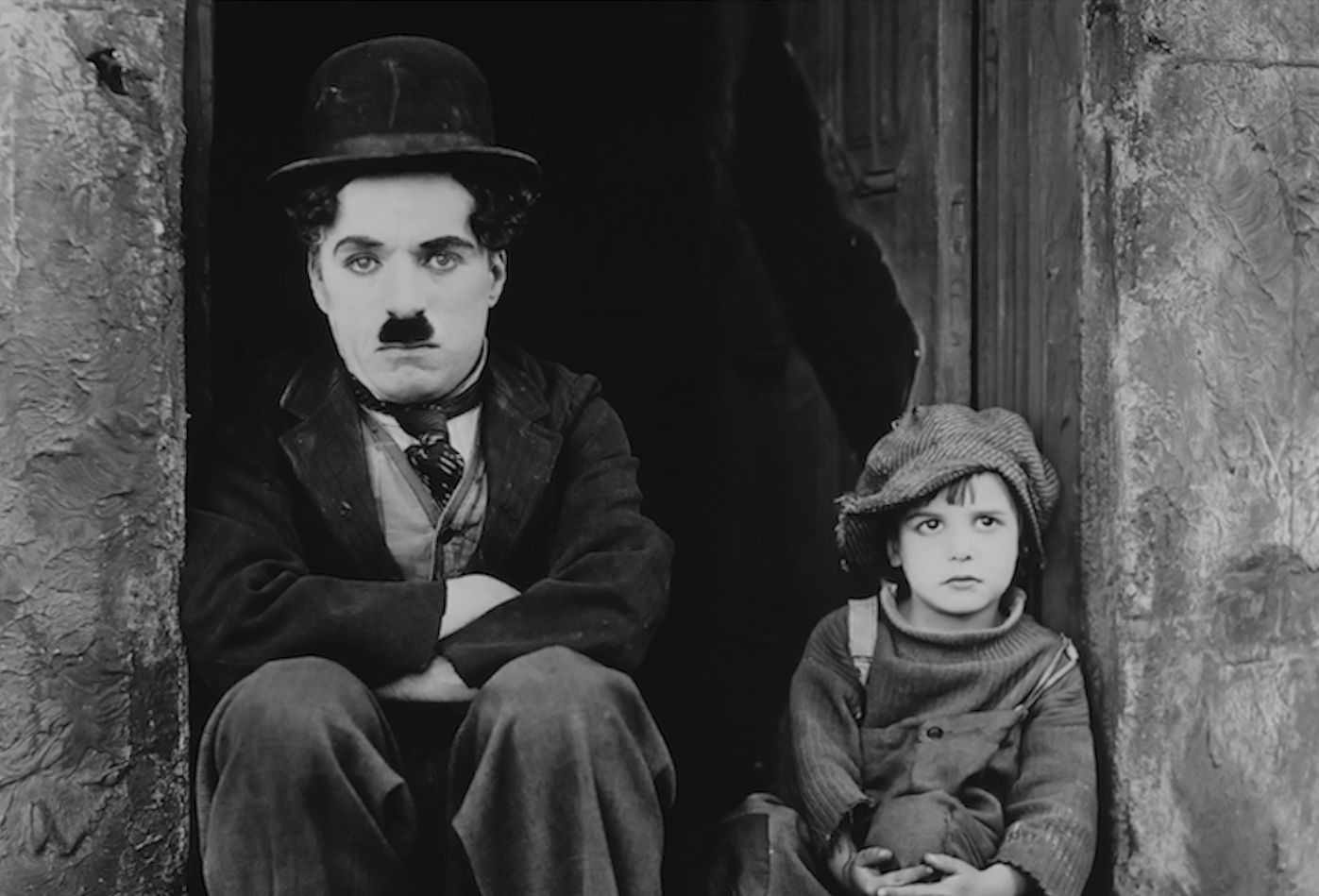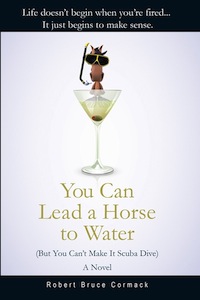Writing Made Simple (According to Charlie Chaplin)
Start by avoiding elephants.

“In the end, everything is a gag.” Charlie Chaplin
Charlie Chaplin once told a reviewer that words were cheap. “The biggest thing you can say is ‘elephant’,” he explained. It took me a minute to get the wisdom of that. Then it made all the sense in the world.
Nothing we write is so complicated, we can’t describe it simply. Start from there and writing is really quite easy. Not easy in the sense that you can just throw down simple words. What I mean is, simple words can convey as much as complicated ones (and we have more of them). Notice none of my words are as long as “elephant” (oops, I just wrote elephant).
Here’s something else Chaplin said: “We think too much and feel too little,” meaning we approach people’s brains instead of their hearts. Politicians do it all the time. If you scratched out all the big words in their speeches (bigger than elephant), you’d have a blank page.
Have you ever wondered why the greatest applause a politician gets is saying, “I love my country”? It’s really quite simple. “Love” is shorter than “elephant.” It also conveys more than “elephant” because we have more love songs than elephant ones. At this moment, I can’t think of any elephant songs except “Horton Hears A Who.” It was a musical with such memorable lines as “Who who who was dah dah dah.”
The most memorable thing Richard Nixon ever said was “I’m not a crook.” Actually, he was a crook, but nobody could accuse him of being confusing.
It sounds better to music, obviously, but it’s interesting that “Who who who was dah dah dah,” is more appealing than most of the political speeches out there. President George Bush Sr. claimed the most powerful speech he ever made featured “Read my lips.” The most memorable words Richard Nixon ever said were “I’m not a crook.” Actually, he was a crook, but nobody could accuse him of being confusing.
When Chaplin said, “In the end, everything is a gag,” he wasn’t trying to be funny. He was simply pointing out that our lives are more comical than we realize. In fact, looking back, the most embarrassing things we do in life provide the greatest lessons. We think we’re fools at the time. Yet, as Chaplin pointed out, “It takes courage to make a fool out of yourself.”
How does this apply to writing — or elephants, for that matter? The day we say “I’ll never be foolish again,” is the day we take away our freedom. That’s all writing is at the end of the day. Without the freedom to step out of our safety zones, we remove the possibility of blundering or missing the mark.
Writing is, afterall, a craft of near misses. We’re explorers and, like every explorer, we’re going to fail along the way. Take David Livingston who spent most of his life in Africa. Despite numerous attempts (and near death) David Livingstone missed finding the source of The Nile. Even worse, as “Africa’s greatest missionary,” he only converted one African (Sechele, an African chief of the Bakwena tribe in Botswana who remains a Christian until his death).
If you believe writing shouldn’t be fun, you miss the point of writing in the first place.
The point is, regardless of whether we succeed or fail, if we don’t allow the possibility of being foolish, writing isn’t much fun at all. And if you believe writing shouldn’t be fun, you miss the point of words, their meanings, and the fun people had coming up with words (gerunds are pretty funny).
All writing is a gag. Life’s a gag. Nothing makes sense without accepting that. When Chaplin said “All I need to make a comedy is a park, a policeman and a pretty girl,” he pretty much summed up life itself. Parks, policemen and pretty girls can end tragically or comically (sometimes it’s both according to Chaplin, who once wrote “Life is a tragedy when seen in close-up, but a comedy in long-shot”).
Sometimes it’s up to us as writers to determine which is which. If we can’t see “the gag,” life becomes very complicated and often sad. Humour, on the other hand, comes with a certain amount of clarity. If the world’s one big source of slapstick, it kind of makes sense. Tragedy doesn’t. How often do we say, “Why did this have to happen to me?” We’re stumped.
Besides, as writers, we aren’t here to explain life. Hell, we’re lucky if we can describe it. Life’s a rollercoaster of mud. If you can’t find the humour in that, you’re not trying very hard. “Mud” is funny.
Here’s something else Chaplin said: “No matter how desperate the predicament is, I am always very much in earnest about clutching my cane, straightening my derby hat and fixing my tie, even though I have just landed on my head.”
Regardless of theme or content, what we’re really doing is showing people how to dust themselves off.
That’s a lesson for every writer. Regardless of theme or content, what we’re really doing is showing people how to dust themselves off. If you go around with dust on your trousers, everyone will know you fell down. The trick isn’t accepting failure, it’s making it look like it never happened.
You might say that’s the basis of slapstick. Nobody ever stays down in a Three Stooges movie — or a Charlie Chaplin one. For all the laughs, we learn that “getting up” is the greatest survival tactic of all—and sometimes the funniest.
That should be the first lesson of writing: “Always get up.” Of course, we always do whether we want to or not. Even that is a gag, if you think about it. For all the criticism and rejection, it’s human nature to get back up and dust ourselves off. Those who don’t usually aren’t writers anymore. They’re reporters or salad chefs.
If we “take our pain and play with it,” as Chaplin advises, it stands to reason we’re accepting life as a gag. We’re still forming words, still pumping out articles and stories and poetry. That’s because we understand the slapstick of life. In the end, it is funny and, for that reason alone, we should accept life as a gag on the rollercoaster of mud.
Elephant remains the biggest because elephants are gigantic and, frankly, our troubles aren’t.
Have you ever noticed there are no bigger words for tragedy? Just as there are no bigger words for love. Elephant remains the biggest because elephants are gigantic and, frankly, our troubles aren’t.
If there’s one lesson life teaches us, it’s that tragedy and comedy all come and go, sometimes returning, sometimes never to be seen again. If you can convey that in your writing, then you’re a writer.
So I’ll leave you with this last Chaplin quote: “Nothing is permanent in this wicked world — not even our troubles.” The day we accept that (and believe it) is the day we can touch the world through words.
Otherwise they’re just words.
And elephants are just elephants.
Robert Cormack is a satirist, novelist and blogger. His first novel “You Can Lead a Horse to Water (But You Can’t Make It Scuba Dive)” is available online and at most major bookstores. Check out Robert’s other work at robertcormack.net

in Café beBee and in 3 more groups
Articles from Robert Cormack
View blog
And why I feel gritty about the future. · “The veterans have brought their own pennants, bicycles, f ...

When you start dispersing crowds with James Blunt songs, it makes you wonder if the world is funny o ...

Fuck. · “I thought about reading a poem by Shakespeare, but then I thought, why should I? He never r ...
Related professionals
You may be interested in these jobs
-
bookkeeper
Found in: Talent CA 2 C2 - 4 days ago
Nautical Consulting Group Ltd. Surrey, CanadaEducation: College/CEGEP · Experience: 2 years to less than 3 years · Tasks · Calculate and prepare cheques for payroll · Keep financial records and establish, maintain and balance various accounts using manual and computerized bookkeeping systems · Maintain general ledgers and f ...
-
Class 3 Pump Operator
Found in: Talent CA C2 - 2 days ago
Ocean Capital Lower Sackville, Canada Full timeJob Description · About Bedford Ready Mix · Bedford Ready Mix has been in operation since 1985 and is a proud member of the OSCO Concrete. In addition to its shared resources with other OSCO Concrete members, the Bedford location also hosts a four-bay repair facility capable of h ...
-
administrative assistant
Found in: Talent CA C2 - 4 days ago
Total Credit Recovery Toronto, Canada Full timeAbout Us: · We are a progressive company in the financial sector, with over 550 employees in 4 offices across Canada. We are currently seeking hard-working, energetic, professional individuals to work as a Customer Service Collections Representative. OVERVIEW OF POSITION: · T ...




Comments
Robert Cormack
2 years ago #4
My pleasure, Neil, thanks.
Robert Cormack
2 years ago #3
Now lingalonga isn interesting word, Ken. Must slip it into a sentence somewhere. Thanks.
Neil Smith
2 years ago #2
I obviously missed this when it was first posted but I'm glad to have read it now. Thanks.
Ken Boddie
2 years ago #1
Reminds me, Rob, of the famous Groucho Marks quip, “One morning I shot an elephant in my pajamas. How he got in my pajamas, I don't know.”
Personally I believe the writer must entertain for words to lingalonga. Even tragedy has its funny side, provided it’s not “too soon?” After all, the best and most important part of any joke is timing … or is it pun-tuality? 😂🤣😂
Pity that old mate Groucho couldn’t spell pyjamas.